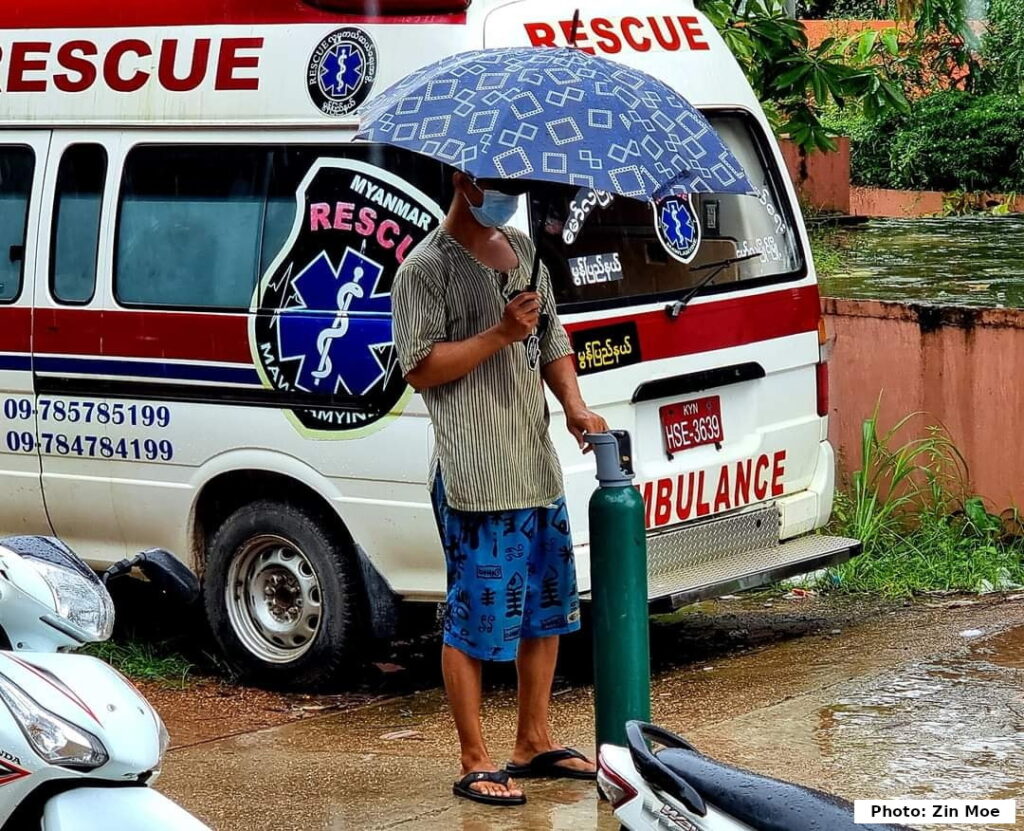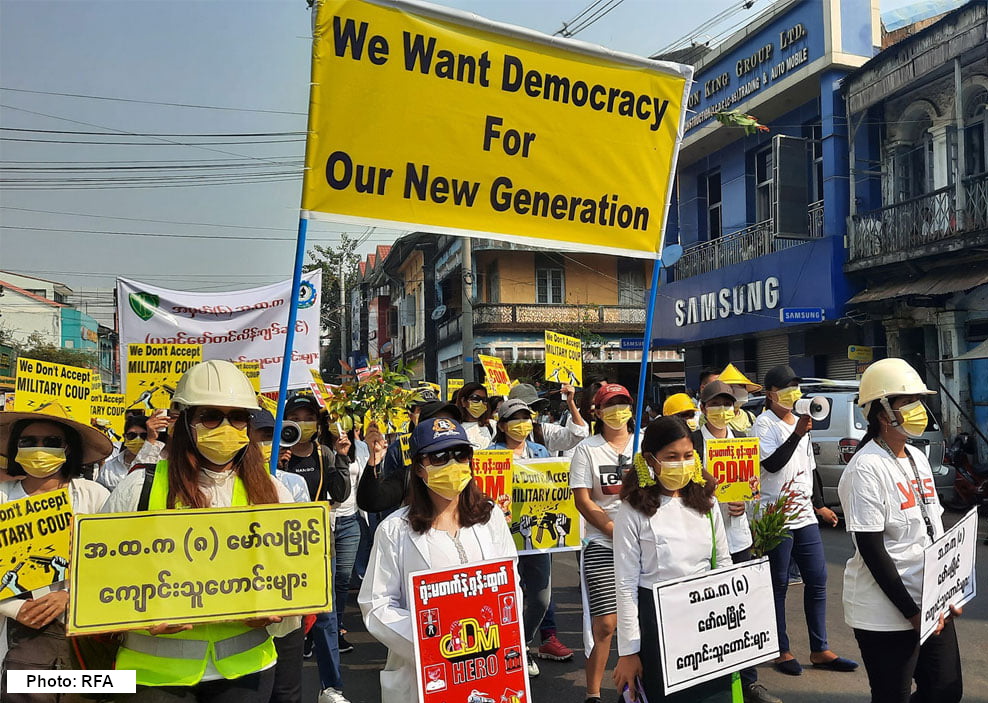Ye residents develop night patrols system to protect against rising number of thefts
September 18, 2023
At about 6 am on September 15, 2023, Thanbyuzayat residents found a man hanging from electrical wires. He appears to have died from an electric shock while trying to steal electrical cable wire from the utility pole in Aung Ku Toe Ward, Thanbyuzayat Township, Mon State.
“He’s a part-time worker from the EPC (Electricity Providing Committee). He tried to steal wire from the utility pole last night, and died from an electric shock. His body was found in the morning,” said a Thanbyuzayat resident.
Read more“Kratom Culture” is growing in Mon areas: substance abuse on the rise
March 20, 2023
HURFOM: Summer festival season celebrates ordinations and weddings. The season has arrived in many Mon communities. Kratom leaf liquor plays an important and essential role in the festival season, to welcome and treat visitors.
Kratom leaves are boiled in a big bowl and distilled to create the liquor that is served to neighbors who came to support the ceremony and guests. During the festival season people are drinking alcohol, beer and Kratom liquor and dancing happily in the ordination ceremonies
Read morePublic health system collapses: public helpless in fight with Covid-19
July 27, 2021

HURFOM: The public health system of Mon State has collapsed during the third wave of COVID-19. High infection rates and deaths have left the public helpless in the fight against the pandemic.
In response to the coup, health workers have left their workplaces, and public hospitals do not have enough beds to accept COVID-19 patients. Private clinics have also closed due to the large number of cases.
Read moreCOVID-19 public health measures not functioning under military junta
June 26, 2021
HURFOM: Mon State has been experiencing an increase of COVID-19 cases. As of June 23 there have been more than 200 cases reported.
Providing care to patients afflicted with the virus has become increasingly challenging due an inadequate number of healthcare staff.
Read moreMilitary coup is a dark chapter for human rights in Burma
April 7, 2021

HURFOM: The February-1 military coup has pulled Burma back into the past of more than 3 decades ago and opened a dark chapter for human rights in the country. Upholding basic human rights was a struggle under the civilian government, but now with brutal killings taking place in the streets on a regular basis , human rights has hit rock bottom under the military junta.
Read moreJeopardy for the poor: Opportunity for the rich
December 2, 2020
Land grabbing during COVID-19 in Southern Ye Township
Despite work and travel bans imposed across Myanmar, a mining company has unlawfully and secretly bought land and plantations in the Magyi village track, in Southern Ye Township, Mon State. The conduct of the company has provoked conflicts within the community, and has led to negative impacts on the livelihoods of local villagers.
Read moreInfectious disease don’t scare empty stomachs
June 19, 2020
HURFOM: “If I can go abroad for work, I won’t have many problems. [But for now] I have to tolerate it as there is a travel ban. My eldest son and I will go to Malaysia for work as soon as the travel ban is lifted,” murmured Daw Ohmar to herself.
Daw Ohmar is a quiet spoken mother of two and recently divorced. She has been struggling to pay off a debt borrowed during her marriage. Her former husband refused to repay the debt and does not provide any support to their two children.
Read moreCan Mon State eliminate its noise pollution?
October 18, 2019
HURFOM: Seasonal festivals, calls for donations, wedding ceremonies and initiations of novices to the monastery are all celebrated loudly throughout Mon State. The use of mobile loudspeakers and sound systems operating at maximum levels can be found at all of these events.
Read moreDo misunderstandings of the parliamentary rules and regulations impair the checks and balances of the legislative and executive branches of government?
October 2, 2019
HURFOM: 49 questions were to be raised during the 14th regular meeting of the second-term of the Mon State Parliament, but the Mon State government replied on September 17 that they could answer only 25 questions.
Read moreDrug use on the rise: Unsupported belief in health benefits of kratom leaf risking Mon youth’s future
September 3, 2019
HURFOM: According to a 2017 report by the Mon Youth Progressive Organization (MYPO), drug use in some ethnic areas, throughout Burma is on the rise. MYPO interviewed 500 people from 10 townships in Mon State. Those interviewed were between 12 to 60 years of age, and had experience with drug use.
Read more


















































